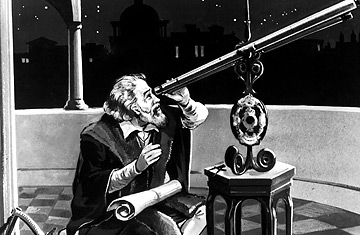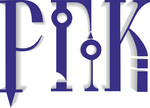

Galileo Galilei was an astronomer, a physicist, a writer, a mathematician, the son of a musician, and a struggling inventor. By the time he was 27 years old, his father had died and left Galileo as the head of the family. Galileo had to support himself, help provide dowries for his two sisters, and regularly bail out his poverty-stricken brother. To make ends meet, Galileo decided to make extra income by inventing.
Galileo was born in 1564 in Pisa, Italy. It was the Renaissance, a time of rebirth for science and culture. Protestantism was spreading across the Old World while European monarchs were staking their claim in the New World. Galileo grew up surrounded by Catholicism and attended a monastery school as a teenager. He almost decided to become a priest, but then instead chose to study medicine at the University of Pisa.
Galileo’s father pressured him to continue studying medicine because it would make the most money, something that their family desperately needed. But physics and math fascinated Galileo. Once, while watching a chandelier swing in the wind, he used his heartbeat to time each swing. He realized that, no matter how far up the chandelier started, each swing took the same amount of time. Galileo had discovered isochronism and soon made his first invention—the pendulum. When he accidentally attended a geometry class, Galileo finally made up his mind to drop medicine and pursue mathematics instead.
Galileo dropped out of college at age 21. He continued studying mathematics on his own and began teaching private lessons to earn money. Through the years, he built inventions such as the geometric compass, a horse-driven water pump, the thermometer, and the microscope. He wrote papers that contradicted Archimedes and eventually inspired Newton. Legend has it that Galileo dropped objects from the top of the Tower of Pisa and timed their fall by singing. And of course, he spent numberless hours tinkering with telescopes and staring at the planets, the moon, and the sun.
Eventually, Galileo’s enthusiasm for discovery began getting him into trouble. As he studied the heavens, Galileo realized that the age-old geocentric model didn’t fit. Instead, even though he couldn’t quite get the math right, Galileo proposed that Earth and the other planets revolved around the Sun. Unfortunately, not only did his new theory contradict the Catholic Church, but some of Galileo’s writings had personally offended those in power. Over the next several decades, Galileo faced Inquisition and was eventually convicted of heresy. He was forced to recant his heliocentric model and sentenced to a life of house arrest.
Galileo spent the end of his life writing Two New Sciences, summarizing everything he had learned about kinematics and strength of materials. But years of studying sunspots through a telescope took its toll, slowly destroying his eyesight until Galileo went completely blind.
At 77 years old, blinded, and confined to his home, Galileo had an epiphany. He remembered his early years in college, watching the pendulum of a chandelier swinging back and forth. A pendulum kept time, he realized. It would make the perfect clock! Since he couldn’t see, Galileo described his new idea to his son, Vincenzo, who made a sketch of his father’s clock. Galileo’s clock was never built, but it later inspired the invention of pendulum clocks.
Throughout his life, mathematics and music inspired his inventions. Galileo was a true polymath, pulling knowledge from many subjects to solve the problems of his time. And although he faced challenges, he let his difficulties motivate him. Whatever the dilemma, Galileo reminds us that we can rise to the occasion with determination and a curious mind.
info@hlhprototypes.com
By Esther Davies








